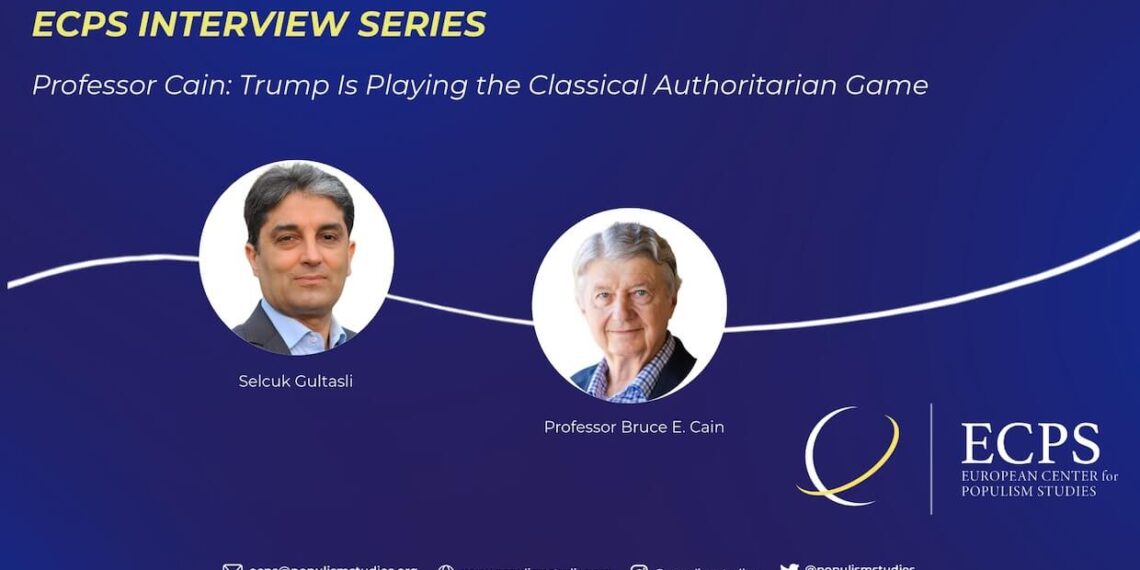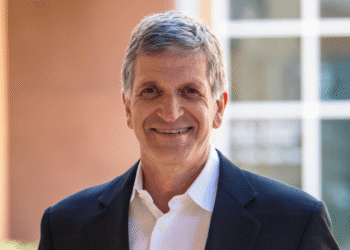In an in-depth interview with the ECPS, Bruce E. Cain—Professor of Political Science at Stanford University—analyzes how Donald Trump has reshaped the Republican Party and advanced classical authoritarian strategies. “There’s no question that, whether by instinct or by deliberate strategy, Trump is playing the classical authoritarian game,” Professor Cain asserts. He situates Trumpism within long-term demographic, institutional, and ideological shifts while underscoring Trump’s unique use of crisis narratives, bullying tactics, and federal coercion. Professor Cain also warns that Trumpism has exploited structural weaknesses in party regulation, executive power, and campaign finance, stressing the urgency of reinforcing democratic guardrails to prevent lasting authoritarian consolidation.
Interview by Selcuk Gultasli
In a wide-ranging and incisive interview with the European Center for Populism Studies (ECPS), Bruce E. Cain—Professor of Political Science at Stanford University and Director of the Bill Lane Center for the American West—offers a penetrating analysis of how Donald Trump’s leadership has reshaped the Republican Party and pushed American politics toward classical authoritarian strategies. “There’s no question that, whether by instinct or by deliberate strategy, Trump is playing the classical authoritarian game,” Professor Cain observes. “There’s no doubt that’s what he’s trying to do. It suits the way he has run his companies, and it suits the kinds of leaders he admires in other countries. He’s essentially following in their footsteps.”
Professor Cain situates Trumpism within broader structural transformations of American politics, emphasizing long-term demographic, geographic, and institutional shifts that made Trump’s rise possible. He points to “social sorting” and “party sorting” since the 1960s, along with growing racial diversity and economic inequality, as crucial background conditions. These shifts, he argues, preceded Trump and “made his rise possible,” even as his “adroit use of social media” and personal brand amplified their impact.
Central to Professor Cain’s analysis is Trump’s deliberate exploitation of crisis narratives and authoritarian tactics. Reflecting on Trump’s response to crises such as the Charlie Kirk assassination, Professor Cain notes that “Trump is playing the classical authoritarian game” and has escalated his reliance on bullying tactics compared to his first term. He highlights Trump’s willingness to deploy federal forces in Democratic-run cities, calling it “very disturbing and very unusual,” and likens it to the EU sending troops into member states to enforce policy—an action that violates deeply held American principles of state sovereignty.
Professor Cain also examines the evolving coalition underpinning the contemporary Republican Party. He underscores the critical role of the MAGA base, describing it as “maybe, at best, 40%, but more likely 30% of the Republican Party’s support,” driven in part by cultural grievance politics and white nationalist narratives. Yet, he stresses the uneasy alliance between this base and more traditional Republicans, warning of internal tensions that could shape future elections.
Institutionally, Professor Cain warns that Trumpism has both exploited and accelerated structural weaknesses in the American political system—from the weakening of party authority and campaign finance regulation to the expansion of executive power. He cautions that if the Supreme Court legitimizes Trump’s expansive claims of emergency powers and unilateral action, “it’ll be monkey see, monkey do,” with Democrats following suit—leading to instability and democratic erosion.
Professor Cain concludes by emphasizing the urgency of shoring up democratic guardrails, particularly regarding executive power, emergency provisions, and the role of the courts. His analysis offers a sobering reminder that while Trump may be unique, the authoritarian strategies he has deployed are embedded within deeper institutional vulnerabilities that will persist beyond his presidency.


